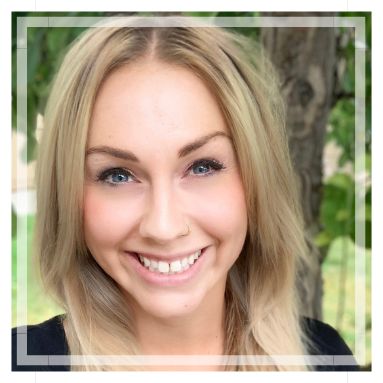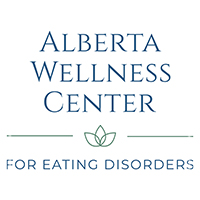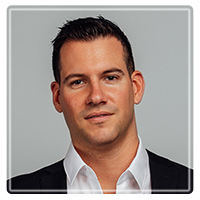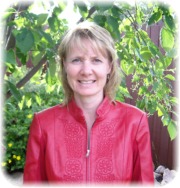
Eating Disorder Counsellor
WJW Counselling and Mediation, RPscyh, CSW, RSW, MED/ARB, DMFT
Registered Psychologist Registered Clinical Social Work RSW Doctor of Marriage and Family Therapy
#402 1 Tache Street, St. Albert, Alberta T8N 1B4 | (780) 460-1037
In today’s society, we’re surrounded by messaging that focuses on physical appearance and rewards certain types of appearances over others. This makes it hard to accept our body and can impact the way we feel about ourselves. Our beliefs around body image are important as it impacts our mental and physical health. While the media portrays a certain body type, this doesn’t cause an eating disorder. How we think about those messages and apply them to our lives is what affects our self-esteem and self-worth.

Eating Disorder Counsellor
Jenna Powell, MSW, RCSW, TITC-CT
Registered Clinical Social Worker
Calgary, Alberta T2J 3Z3 | 403-681-9271
I specialize in treating eating disorders, binge-eating and self-esteem/body image concerns. Using Cognitive Behavioural Therapy and Dialectical Behavioural Therapy, I help you to understand the function of your eating disorder, and to find healthy ways to meet this need that the eating disorder was providing. I can assist you in better understanding how eating disorders work, and help guide you on your recovery. This type of support can benefit you as people with eating disorders often live in isolation with shame, so beginning to talk about the eating disorder is the first step to finding recovery and to no longer hiding alone.

Eating Disorder Counsellor
Paul Bianchini, Ph.D., R.Psych.
Registered Psychologist
9505-79 Street, Edmonton, Alberta T6C 2S1 | 780-757-5535
Sometimes we deny our needs and this can include our need to eat. The problem is the control others might have over us if we are to reveal our needs. Exploring the need to express our needs and have control over our lives increase our ability to choose. The tangible we create with our bodies that mirror this dilemma can take many forms, but the healing comes from reconnecting to our needs. I have successfully worked with people from a variety of backgrounds to treat a variety of eating disorders and look forward to working with you. Visit my website at www.prairieowlpsychology.ca from more details.

Eating Disorder Counselor
Kevin Alderson, Ph.D.
Registered Psychologist (Alberta and Ontario)
Available for Online Therapy
[I OFFER VIDEO SESSIONS THROUGHOUT ALBERTA AND ONTARIO]. I work with clients who are addicted to food and/or who are wanting to lose weight. I do not work with people with anorexia or bulimia because I am in private practice and I am neither a physician nor do I work in a medical facility. I have, however, been a psychologist since 1986. I specialize in addictions. If you would like to see me, book now by visiting https://app.acuityscheduling.com/schedule.php?owner=14249112

Eating Disorder Counsellor
Rivers Edge Counselling Centre, Inc.
Rivers Edge Counselling Centre
1 Tache Street, Suite #310, St. Albert, Alberta T8N 1H4 | 780-460-0022
We have psychologists who specialize in helping clients with disordered and unhealthy eating, as well as recovery from eating disorders. Therapists draw on CBT and Mindfulness, among other modalities, to help clients who suffer from the painful effects of eating disorders. Out therapists are experienced, compassionate and also flexible in their approach, as we know that each person must travel a unique path to healing.

Eating Disorder Counselor
Kevin Fleming, Ph.D.
Coach/Change Agent/Consultant
At Home or Private Discreet Intensives
While most eating disorder issues are treated by cognitive behavioral methodologies or specialized outpatient/inpatient programs, Grey Matters International and the work of Kevin J. Fleming, PhD provide relief first and foremost for the brain of one suffering from an eating disorder----without giving them medication. We believe that the neural circuitries responsible for the compulsive behaviors with eating are not necessarily only a neurotransmitter issue but of overused neural networks that affect the harmonization, balance, and decisions of the whole brain. Contact kevin@kevinfleminphd.com or 877-606-6161 to learn more about this safe and effective alternative.

Eating Disorder Counsellor
Alberta Wellness Center for Eating Disorders, PhD, RPsyc, RN, RD
Registered Psychologists, Registered Dietitians, Registered Nurse, Registered Provisional Psychologists
2715 Ellwood Dr SW, Edmonton, Alberta T6X 0P7 | 780-977-7062
Our team integrates a variety of evidence based and innovative approaches. We believe in working collaboratively with our clients to find an approach to treatment that fits best for you. We operate from a holistic lens and focus on addressing physical, psychological, emotional, relational, and spiritual healing. Our goal is to help our clients achieve a meaningful and long lasting recovery.

Eating Disorder Counselor
Philip Starkman, MSW, RSW
Registered Psychotherapist
Available for Online Therapy
Eating disorders benefit from the same or similar approach used for all addictive behaviours. One of the main therapeutic approaches I use is Mindfulness Based Cognitive Therapy. The relationship to food can be quite complex involving societal or cultural pressures, self-image, past traumas, addictive non-nutritious junk food, media images, social media pressures, bullying. Shame and guilt need to be addressed along with peer pressures. The most common eating disorders are: Anorexia, Bulimia, Binge Eating, Pica, Rumination Disorder, Avoidance/Restrictive Food Intake Disorder (ARFID), Orthorexia, Purging Disorder etc. The benefits of therapy are enhanced self-image, health and well-being.

Eating Disorder Counselor
Steve Rose, PhD
Addiction Counsellor
Available for Online Therapy
I help clients overcome addictive relationships with food. Like all addictions, the behavior is the tip of the iceberg, used to cope with underlying thoughts and emotions. Through collaborative conversations, clients gain insight into underlying concerns, gaining coping skills to more effectively navigate these issues. I draw on Acceptance and Commitment Therapy (ACT) and Motivational Interviewing (MI), helping clients achieve a sense of freedom and control over their lives, leading to long-term change.

Eating Disorder Counsellor
Tom Burton, CTA, RTC, MTC
Certified Transactional Analyst Psychotherapist and Registered Counsellor
7718 104th Street, Edmonton, Alberta T6E 4C5 | 587 372-5638
Eating disorders are a symptom of low self esteem. What is need is an ongoing psychotherapy to become aware of feelings and needs that have been repressed while attending to learning new ways of self care and replenishment. Help in providing a structure and contracts for change are also part of the treatment for eating disorders.

Eating Disorder Counsellor
Tamara Hanoski, Ph.D, R.Psych
Registered Psychologist
5704 72 Street NW, Edmonton, Alberta T6B 3J4 | (780)604-8704
Eating disorders, whether this is in the form of anorexia, bulimia, or compulsive/emotional eating, can be seen as an unheatlhy coping mechanism for stress and life difficulties. I work with clients to identify the issues they are experiencing, and replace their maladaptive coping methods with more healthy ones. This would include working through unresolved issues, identifying difficulties with control, establishing more assertiveness and healthy boundaries, learning the appropriate expression of feelings, and working through body image issues. We would also work towards identifying triggers for disordered eating, and then put coping strategies in place for when these occur in the future.

Eating Disorder Counsellor
Compassionate Counselling Inc., Therapists
Compassionate Counselling Inc.
10069 80 Avenue, Edmonton, Alberta T6E 1T4 | (780) 482-1847
Our relationship with food can get really complicated! Food is intended to nourish us and keep us healthy, but a unhealthy relationship with food can easily develop. Frequently food becomes a coping mechanism for dealing with stress, anxiety, perfectionism and self-hate. It is when you start to address the underlying causes of destructive eating and begin to value yourself more that you can start to develop a healthier relationship with yourself and food.

Eating Disorder Counsellor
Kim Silverthorn, B.A., R.P.C., M.P.C.C., C.T
Psychotherapist
17214 60 Ave NW, Edmonton, T6M 1E3 | 780-803-5501
Starting as early as in grade 2, our youth are deeply affected by the issues of body evaluation and peer acceptance. More and more kids are falling into despair because they don’t know how to combat the pressures of going along with what others might consider normal, or because they don’t have the tools to fight against the moments of low esteem/confidence that are a regular part of youth development. Dealing with eating disorders requires a two prong approach - the physical aspect of the disorder must be addressed, as does the psychological aspect of the issue. Tools for healthier resiliency must be developed.

Eating Disorder Counsellor
Paul Sussman, Ph.D.,R.Psych.(AB),L.Psych.(GA)
Licensed Psychologist, Alberta and Georgia
14307 - 80 Avenue, Edmonton, Alberta T5R 3K2 | 780-424-5592
I view eating disorders as process addictions. I view addictions and compulsions as coping strategies that persist because they work (or once did); but are being identified as disordered because they no longer help the client cope they way they once did. So, sourcing the root of the disorer is essential. There are also specific strategies for altering habitual behaviors that can be quite useful as the client turns from a failing method of coping to one that in fact functions and permits personsl growth toward self-actualization.

Eating Disorder Counsellor
Nancy Hurst, Ph.D
Registered Psychologist
10069- 80 Ave, Edmonton, Alberta T6E 1T4 | (780) 482-1847
Eating disorders can manifest in a number of forms; including over eating, bulimia and anorexia. A therapist is an integral part of your treatment. Our relationship with food is usually not just physical, but emotional as well. If your emotional relationship with food is not addressed it is difficult to make lasting changes. Often people deal with unpleasant feelings by eating or not eating. I will help you to address feelings and deal with them in a more constructive manner.
You Have Found Honest and Real Therapy for Food Issues in Edmonton, AB.
Are you ready to start on a new path? Thank you for visiting our Alberta search of licensed therapists in Edmonton who specialize and have experience treating food issues such as anorexia, over eating, food aversions, orthorexia nervosa and bulimia. Food issues affect anyone, both children and adults and can impede our relationships and daily life. Counselling for help with food and eating is a vital component of healthy recovery and restoration. Find the right counselor for eating and food issues in Edmonton right now and begin your new life.
Edmonton is located in Alberta, Canada. It has a land area of 685.25 square kilometers. The population of Edmonton is nearly 1 million people with 360,828 households . The population ranking for Edmonton is #5 nationally and #2 for the province of Alberta with a density of 1360.90 people per sq km. Edmonton therapists serve postal code: T5K.
